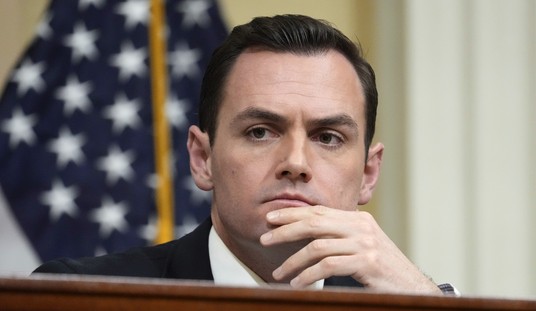Vox published an interesting interview Sunday with Eric Weinstein. Weinstein is a managing director at Peter Thiel’s investment firm and is also the brother of (former?) Evergreen State College professor Bret Weinstein. The interview is about the future of capitalism and Vox has titled it “Why capitalism can’t survive without socialism.”
What Weinstein actually has to say about the future of capitalism is more interesting than the headline suggests. He believes the production and assembly jobs of yesteryear are not coming back. As computer technology improves a greater and greater percentage of what we consider traditional work will no longer require human hands:
Since the Industrial Revolution, technology has been a helpful pursuer, chasing workers from the activities of lowest value into repetitive behaviors of far higher value. The problem with computer technology is that it would appear to target all repetitive behaviors. If you break up all human activity into behaviors that happen only once and do not reset themselves, together with those that cycle on a daily, weekly, monthly, or yearly basis, you see that technology is in danger of removing the cyclic behaviors rather than chasing us from cyclic behaviors of low importance to ones of high value.
But that does not mean that Weinstein believes the end of free markets are at hand. On the contrary, he suggests the market will need to become more free for the people capable of creating new things. But for everyone else…? He suggests the kind of assembly line jobs that used to provide high school grads with a decent wage need to be replaced by something and that something is some form of socialism:
I believe capitalism will need to be much more unfettered. Certain fields will need to undergo a process of radical deregulation in order to give the minority of minds that are capable of our greatest feats of creation the leeway to experiment and to play, as they deliver us the wonders on which our future economy will be based.
By the same token, we have to understand that our population is not a collection of workers to be input to the machine of capitalism, but rather a nation of souls whose dignity, well-being, and health must be considered on independent, humanitarian terms. Now, that does not mean we can afford to indulge in national welfare of a kind that would rob our most vulnerable of a dignity that has previously been supplied by the workplace.
People will have to be engaged in socially positive activities, but not all of those socially positive activities may be able to command a sufficient share of the market to consume at an appropriate level, and so I think we’re going to have to augment the hypercapitalism which will provide the growth of the hypersocialism based on both dignity and need.
There’s a lot to unpack here but clearly what he’s describing is really a two-tier system. There are those “minority of minds” who will continue to thrive in some kind of hypercapitalism. Meanwhile, everyone else will need to rely on some kind of universal basic income.
Elsewhere in the piece, Weinstein talks about the danger of today’s truly rich being out of touch with how the majority of people live. But his prediction of the future sounds like a place where that would be even more the case than it is now. How does a hypercaptialist relate to millions of people who don’t feel the need to work at all? I joked on Twitter that this is how you get the Eloi and the Morlocks, two groups who no longer seem to have anything in common.
Weinstein also acknowledges the dignity of work in his comments about the future. What’s not clear is how his system would avoid the problem of free riders, i.e. once people are no longer expected to make it on their own why would they even try? Why not just stay home and collect subsistence? I’m not saying everyone would do that but what if 15% of the population did? Could society carry the weight of all those who refuse to do anything for themselves?
And what is the political system that guides this future? Do the capitalists and socialists each get the same vote? If so, what’s to keep the socialists (who are in the majority) from voting themselves a raise every six months. What prevents a Hugo Chavez figure from running on a platform to add a tax on the hypercapitalists or simply expropriate all of their earnings and products en masse for the good of the people. That sort of thing is usually popular in socialist countries until it begins to backfire as it is now in Venezuela.
Obviously, I’m not convinced by this argument, but it does raise some interesting questions. When machines can do a better job at most things than human workers, how will the millions of people who once had those jobs survive? People on the right should be thinking about this because you can bet people on the left are already doing so.








Join the conversation as a VIP Member